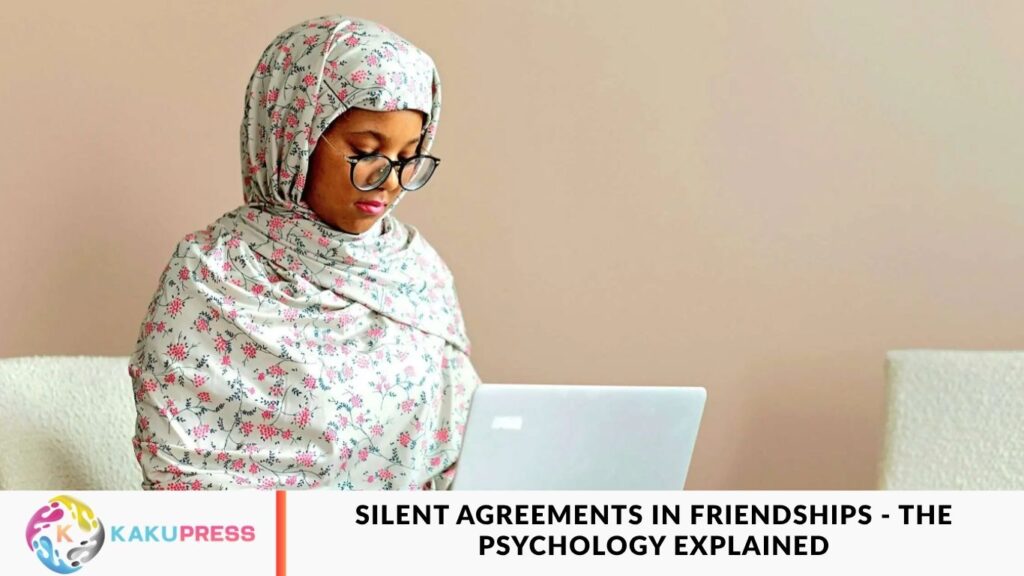Friendships are often praised for openness and communication, yet many of the deepest bonds thrive on silent agreements—unspoken understandings that guide behavior, expectations, and emotional exchanges without explicit discussion. These unspoken accords shape friendship dynamics in ways that psychology is only beginning to explore.
How Silent Agreements Form in Friendships
Silent agreements naturally develop as friends build a shared history and deep familiarity. Over time, patterns of interaction, mutual preferences, and personal boundaries become clear without constant verbal reinforcement.
For instance, friends may instinctively know when to offer support rather than give space, which topics are sensitive, and how to interpret moods. These unspoken cues foster trust and comfort, creating a sense of security where one can feel understood without saying a word.
The Psychology Behind Silent Agreements
From a psychological perspective, silent agreements act as social heuristics—mental shortcuts that reduce the cognitive effort required to navigate complex relationships. Instead of negotiating every detail, friends rely on shared experiences and emotional attunement to anticipate each other’s needs and reactions. This approach helps maintain harmony and prevents misunderstandings that might arise from over-communication or explicit demands.
Potential Risks of Silent Agreements
Despite their benefits, silent agreements can also create tension. Without clarity, assumptions may differ. One friend might expect constant availability during crises, while the other may value privacy, leading to silent resentment or feelings of neglect.
These dynamics highlight the fragile nature of unspoken expectations, showing why even strong friendships sometimes require verbal check-ins to avoid misunderstandings.
You Like It: About Us
Why Friends Rely on Unspoken Understandings
Silent agreements also satisfy the human need for belonging and acceptance. Implicit understanding signals intimacy and trust without judgment. The less that needs to be spelled out, the more effortless and genuine a friendship feels. Yet this balance demands emotional sensitivity and perceptiveness from both friends.
Maintaining Healthy Friendships
Healthy friendships combine silent agreements with occasional explicit communication. Periodically clarifying boundaries and expectations strengthens trust, enhances resilience, and supports long-term growth.
Frequently Asked Questions
What are silent agreements in friendships?
Silent agreements are unspoken understandings between friends that guide behavior, expectations, and emotional responses without explicit discussion.
How do silent agreements form?
They naturally develop over time as friends share experiences, build trust, and become familiar with each other’s habits, boundaries, and preferences.
Why are silent agreements important in friendships?
They reduce misunderstandings, foster trust, and create a sense of comfort, making friendships feel effortless and emotionally secure.
What is the psychology behind silent agreements?
Psychologically, silent agreements act as social heuristics—mental shortcuts that help friends predict each other’s needs and reactions, reducing cognitive strain in relationships.
Can silent agreements cause problems in friendships?
Yes, differing assumptions or unspoken expectations can lead to misunderstandings, resentment, or feelings of neglect if boundaries are not mutually understood.
How can friends maintain healthy silent agreements?
By combining implicit understanding with occasional open communication, friends can clarify expectations and strengthen trust without losing the effortless bond.
Are silent agreements the same as unspoken rules?
Not exactly. While unspoken rules are general behavioral norms, silent agreements are specific to the emotional dynamics and shared history of a particular friendship.
Conclusion
Silent agreements reveal that the deepest connections often thrive without words. These unspoken understandings guide behavior, build trust, and foster emotional intimacy, highlighting the subtle ways psychology shapes friendships. While they can sometimes lead to misunderstandings, balancing implicit trust with open communication strengthens bonds and ensures long-lasting relationships. Ultimately, silent agreements show that some of the strongest friendships are defined not by what is said, but by what is quietly understood.

